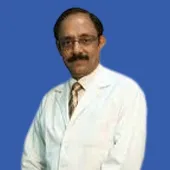We found 3 Neurosurgeons near you in Lucknow. You can easily connect with a top Neurosurgeon in Lucknow, who can provide advanced treatment and caring support for your Neurosurgery concerns.
Neurosurgeons near me
3 Neurosurgery doctors in Lucknow

Manipal Hospital, Ghaziabad
Rs. 1,100 Consult Fees

Manipal Hospital, Ghaziabad
Rs. 1,100 Consult Fees

Manipal Hospital, Ghaziabad
